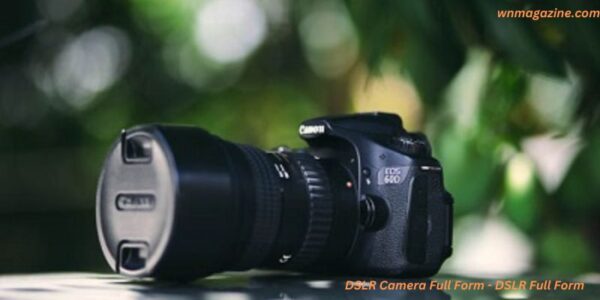DSLR Full Form: What Does DSLR Stand For? Dslr Tips 2 Make Your Photos Fabulous
DSLR Full Form: is digital single-lens reflex. DSLR stands for digital single-lens reflex. It is a popular type of camera with interchangeable lenses that provide professional quality images.
Professionals favor DSLR cameras because they offer much flexibility in lens choice, shooting conditions, and high-quality build and image quality. Some people even call them “professional cameras” to differentiate them from point-and-shoot cameras, sometimes called “consumer cameras.” Knowing all this, it’s essential to keep your DSLR in good condition. You want it to last as long as possible so you can keep getting professional shots. Here’s how you can do just that without breaking the bank!
What is a DSLR camera? || full form of dslr || DSLR Full Form
A DSLR camera is different from all other cameras because it can capture images with lenses. Most importantly, DSLR is a type of camera that allows for high-quality images compared to conventional digital cameras. Let’s see why it is a digital SLR camera. Mainly two types of DSLR cameras are available in the market – Canon, and Nikon. Canon is a division of Canon Inc., whereas Nikon is a division of Nikon Corp.
Also Read: Wellhealth Ayurvedic Health Tips
Nikon cameras have automatic focusing, whereas Canon DSLRs require a certain amount of tweaking before you start clicking. Some people believe the best camera for photography is the one produced by Canon, while others claim there is nothing better than Nikon shooting equipment. The topic is arguable and the choice is usually affected by personal preferences. So, let us look at some essential points that will help you identify whether your Canon camera or Nikon camera is a Canon or a Nikon.
What are the benefits of using a DSLR camera? || dslr camera full form || DSLR Full Form
Benefits of using a DSLR camera?
- It gives you a high degree of control over the final image. You can adjust the focus, ISO, white balance, and exposure at every stage of the process.
- For beginners, it is easier to get started with a DSLR camera because you get a camera with a bunch of technical manuals.
- You will learn to deal with different aspects of photography.
- After you start using a DSLR camera, you will come across unique angles and use them to your advantage. Durable camera body:
You must have heard it a thousand times. A DSLR is an excellent investment for a photography enthusiast. It is durable, lightweight, and produces decent photos. You will not face any problems while handling the camera because of its rigid body and rubber lens protector.
How to use a DSLR camera effectively? || dslr ka full form || DSLR Full Form
The use of DSLR is pretty straightforward. First of all, it offers some basic features that let you take pictures in any situation. For example, it has an intervalometer that automatically sets shutter speed and aperture according to the ambient light. DSLR can also adjust it manually, but it takes time. This feature is handy to take pictures in low-light conditions. The camera also allows the user to focus the lens manually.
When you touch the AF button on the top, the camera focuses the lens automatically. It also allows changing the ISO value. It has two modes – Standard and High. You can choose between them by pressing Fn (Fn is short for Function). The third feature that makes the DSLR camera most user-friendly is the lens. Each lens has a specific focal length and aperture size.
Also Read: well health tips in hindi wellhealth
Conclusion || what is the full form of dslr || DSLR Full Form
If you are new to photography, then a DSLR camera would be the best choice to take great photographs. Most professional photographers use DSLR cameras and take fabulous photographs with them.
A DSLR camera is a type of digital camera that can take high-quality photos and videos. DSLR stands for Digital Single Lens Reflex. This means that your camera’s sensor image is the same as what you see through the viewfinder. The term “single-lens reflex” refers to how the photographer sees and captures a photograph, often through a mirror.
